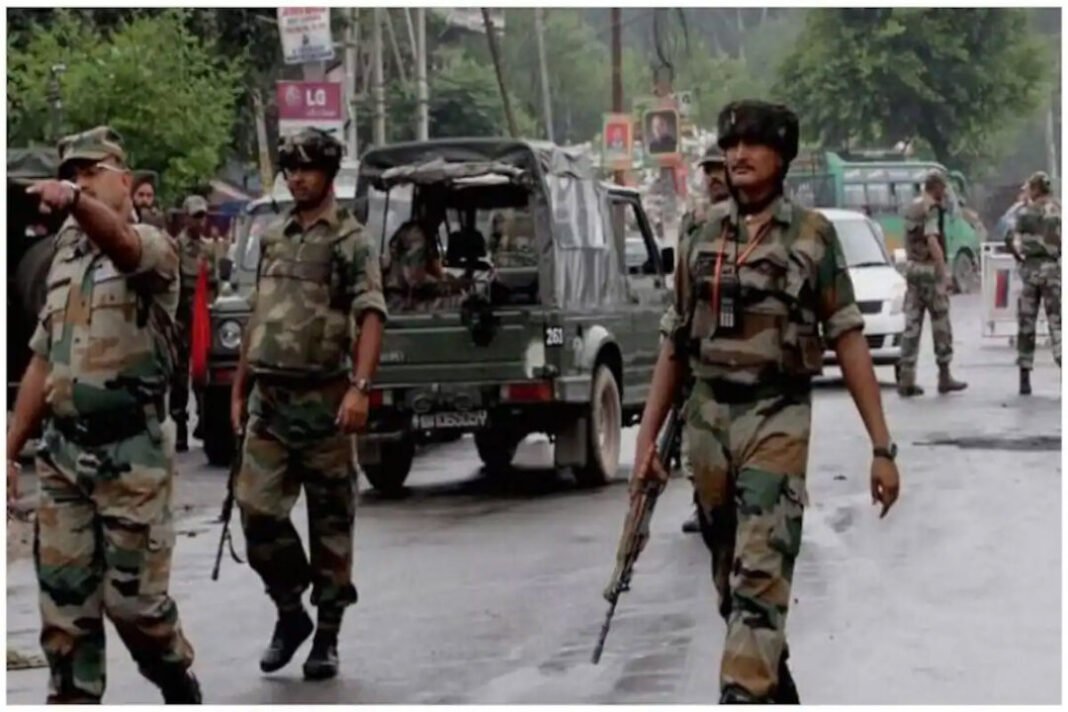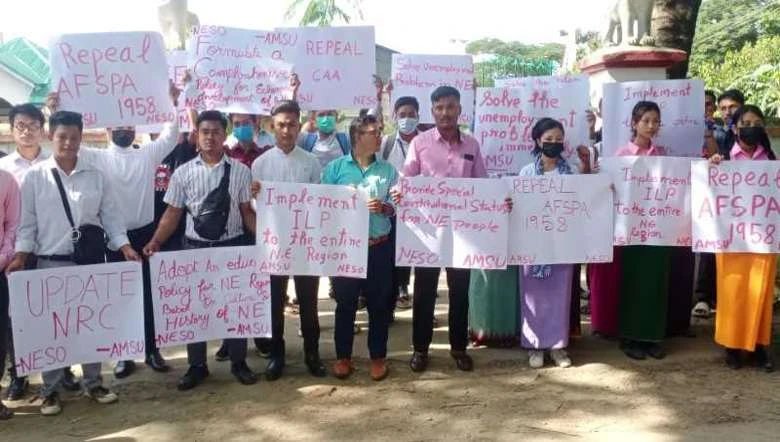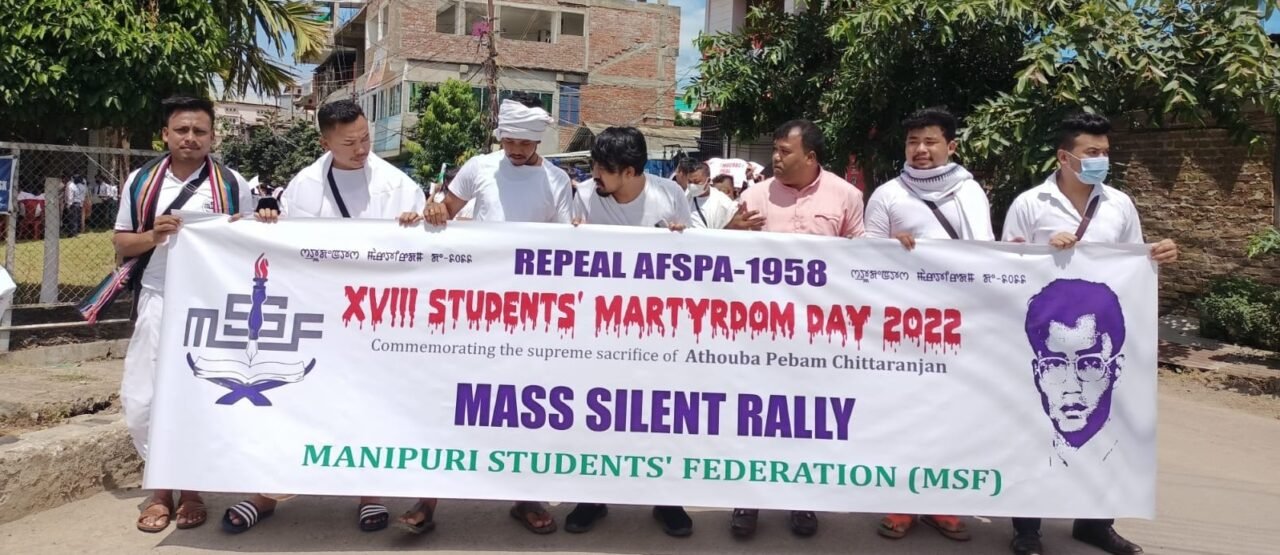HT Digital
IMPHAL, APR 9: A coalition of six leading student organizations in Manipur has issued a strong call for the immediate repeal of the Armed Forces (Special Powers) Act, 1958 (AFSPA), labeling it a “black law” that instills fear, undermines human rights, and weakens democratic values.
In a joint statement released on Tuesday, the groups—All Manipur Students’ Union (AMSU), Manipuri Students’ Federation (MSF), AIMS, Democratic Students’ Association of Manipur (DESAM), Students’ Union of Kangleipak (SUK), and Kangleipak Students’ Association (KSA)—voiced their collective opposition to the central government’s recent decision to extend AFSPA in Manipur for another six months starting April 1, 2025.
The alliance condemned the continuation of the Act, describing it as repressive and undemocratic. They cited numerous cases of alleged fake encounters, enforced disappearances, and extrajudicial killings carried out under the guise of counter-insurgency operations. According to them, AFSPA has enabled a dangerous culture of impunity by giving security forces unchecked authority.
“AFSPA has generated a culture of impunity and fear, empowering the security forces to operate without accountability,” the statement read. The student bodies argued that such a law has no place in a democratic nation and must be repealed in the interest of justice and lasting peace.
The Ministry of Home Affairs, in its notification dated March 30, 2025, declared Manipur a “disturbed area” under Section 3 of the Act, effectively extending AFSPA across most parts of the state. However, limited exemptions were granted for areas under the jurisdiction of 12 police stations in Imphal and surrounding districts, including Lamphel, Singjamei, Thoubal, Bishnupur, and Kakching.
Originally enacted in 1958 to address insurgency in the Naga-dominated regions of the erstwhile Union Territory of Manipur, AFSPA has remained one of India’s most controversial laws. Over the decades, it has faced sharp criticism from civil society groups, human rights organizations, and student movements for allegedly enabling state violence rather than resolving conflict.
The student alliance is the latest to add its voice to the growing demand for AFSPA’s repeal. They urged the government to heed the will of the people and initiate steps to withdraw the law. The groups emphasized that AFSPA only widens the trust deficit between the people and the state, and asserted that its removal is essential for building genuine peace and restoring public confidence in governance.












